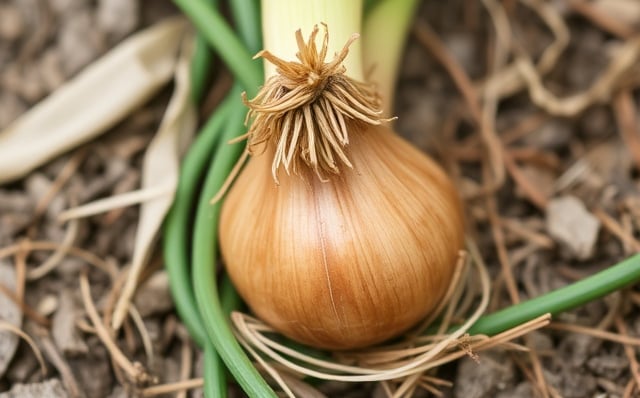Celebrate health, flavor, and inspiration with Chef Will Smith Kitchen – because great food fuels great living.

The Sweet and Savoury History of Onions – From Britain to Bermuda
Onions—humble yet indispensable—have long been a cornerstone of global cuisine. Let’s peel back the layers and uncover the fascinating story of onions.
William Smith
1/8/20253 min read



Welcome to Will Smith Kitchen, where we celebrate flavours, culture, and history—one ingredient at a time. Today, we’re peeling back the layers of one of Bermuda’s most iconic crops: the Bermuda onion. Known for its mild, sweet flavour, this humble vegetable has earned a place not only in Bermuda’s history but also in kitchens around the world.
Onions—humble yet indispensable—have long been a cornerstone of global cuisine. From the hearty stews of Britain to the sweet and mild flavours of Bermuda onions, this versatile vegetable has embedded itself deeply in culinary traditions worldwide. Let’s peel back the layers and uncover the fascinating story of onions.
The Backbone of Traditional British Dishes
The history of onions in Britain dates back to ancient times. Introduced by the Romans, onions quickly became a household staple due to their long shelf life and versatility. Medieval British recipes often featured onions as a key ingredient, valued not only for their flavour but also for their medicinal properties. Herbalists prescribed onions for everything from sore throats to poor digestion.
Onions form the base of numerous classic British recipes. Take the iconic shepherd’s pie or Lancashire hotpot—both rely on onions for their foundational flavour. Soups like French onion soup, which gained popularity in Britain, also showcase the vegetable’s ability to transform a simple broth into a rich and hearty dish.
In more recent years, pickled onions have become a pub favourite, often served alongside a ploughman’s lunch. Their sharp, tangy flavour complements cheese and cold cuts perfectly, demonstrating yet another dimension of this versatile vegetable.
Beyond the kitchen, onions have played symbolic roles in British culture. Traditionally, onions were believed to ward off evil spirits, and their layers were thought to represent complexity and wisdom. During the Victorian era, onions were often hung in kitchens as both a practical and decorative element.
The Sweet Story of the Bermuda Onion – A Culinary Gem
The Bermuda onion’s story begins in the early 1600s when settlers introduced onions to the island’s fertile soil. Bermuda’s warm climate and rich, sandy earth proved ideal for growing these bulbs, and they quickly flourished. By the 19th century, Bermuda onions had gained international fame, especially in North America, where they were prized for their size, sweetness, and versatility.
Farmers in Bermuda worked tirelessly to cultivate onions that were not only delicious but also hardy enough to withstand shipping overseas. As demand grew, the onion trade became a key pillar of Bermuda’s economy, earning the island its playful nickname, “The Onion Patch.”
During the late 1800s and early 1900s, Bermuda onions were a culinary sensation. Exported by the thousands, they made their way into markets and homes across the United States and Europe. These onions were so iconic that Bermudians themselves became affectionately known as “Onions.”
At the height of their popularity, Bermuda onions symbolised prosperity and quality. They were served in salads, soups, and roasts, becoming a staple ingredient in kitchens everywhere.
Like many crops, the Bermuda onion faced challenges over time. The rise of large-scale farming in other regions, particularly in the southern United States, meant that cheaper onions could be grown and distributed more efficiently. By the mid-20th century, Bermuda’s onion exports began to dwindle, and eventually, the island shifted focus to tourism rather than agriculture.
Despite this shift, the legacy of the Bermuda onion lives on. It remains a cherished part of local cuisine and a reminder of the island’s rich agricultural past.
A Shared Love That Lasts
Whether in Britain’s savoury pies or Bermuda’s sweet onion soups, onions have proven their worth time and time again in kitchens worldwide. Their adaptability, affordability, and flavour-enhancing qualities make them an essential ingredient in both traditional and modern recipes.
At Will Smith Kitchen, we believe ingredients tell stories, and onions—from Britain’s historic fields to Bermuda’s sandy soils—are rich in tradition, flavour, and resilience. So, the next time you slice into an onion, whether sharp or sweet, remember the journey it took to reach your plate.
Stay sharp, stay flavourful—Chef Will.
